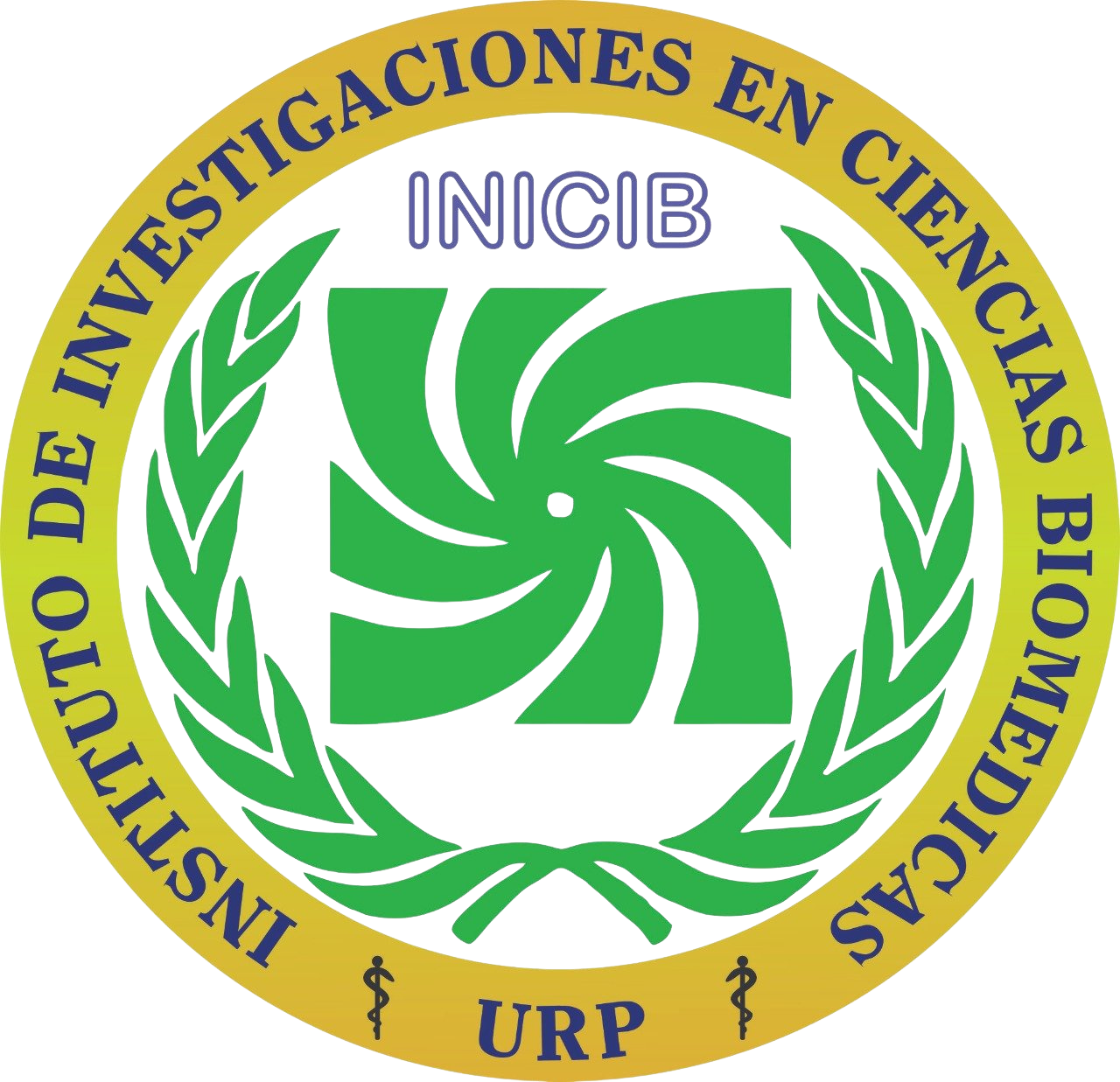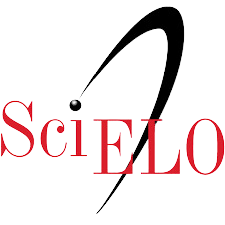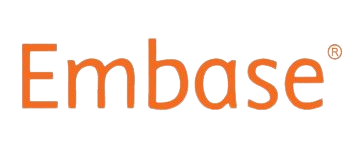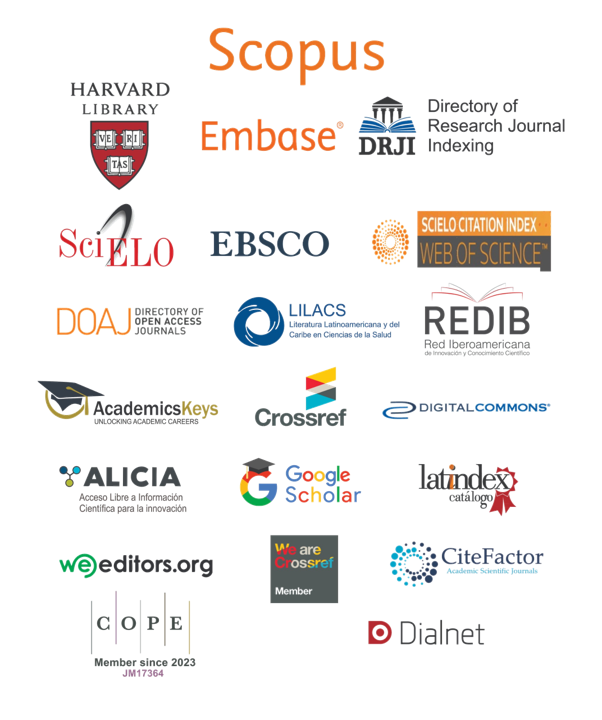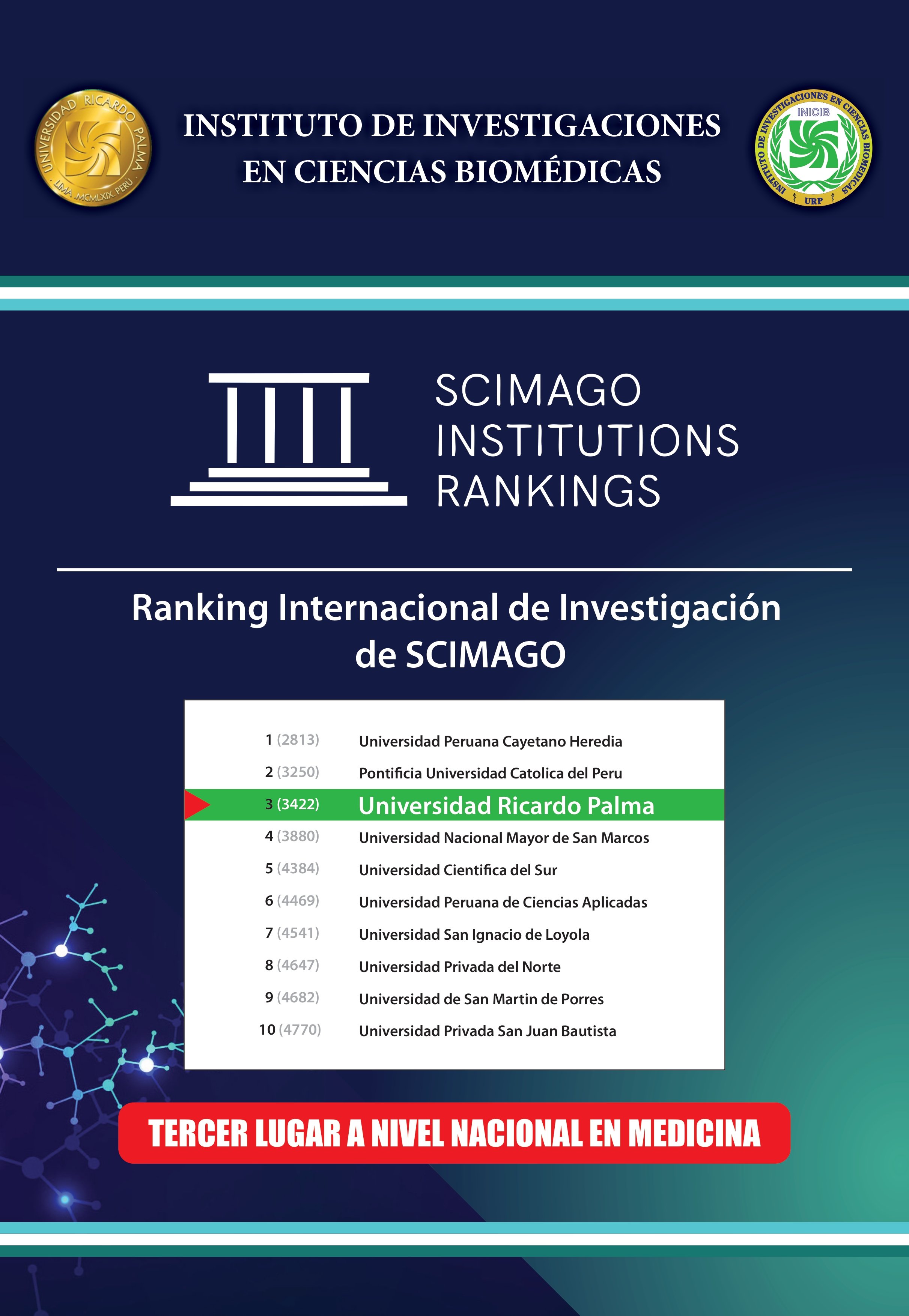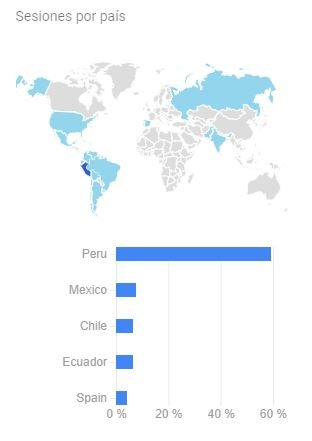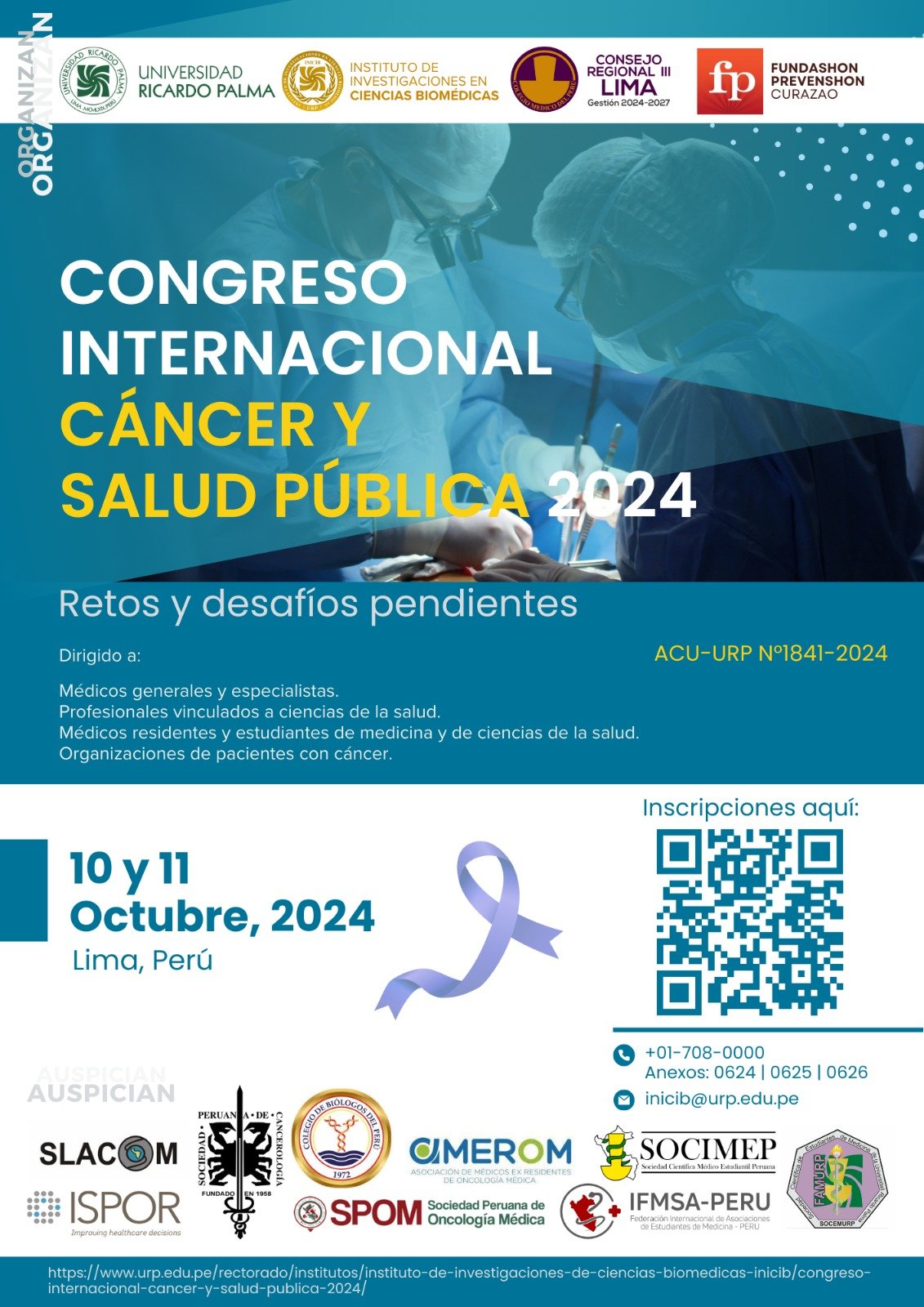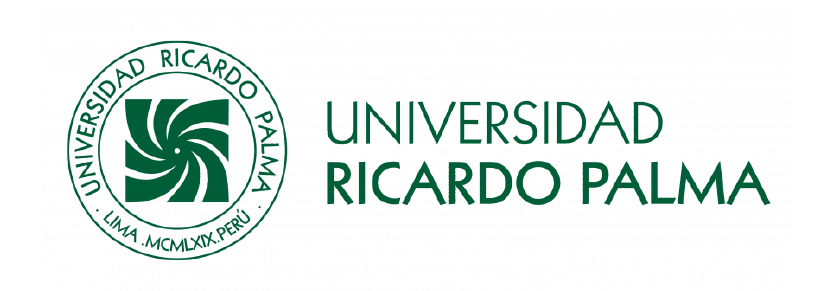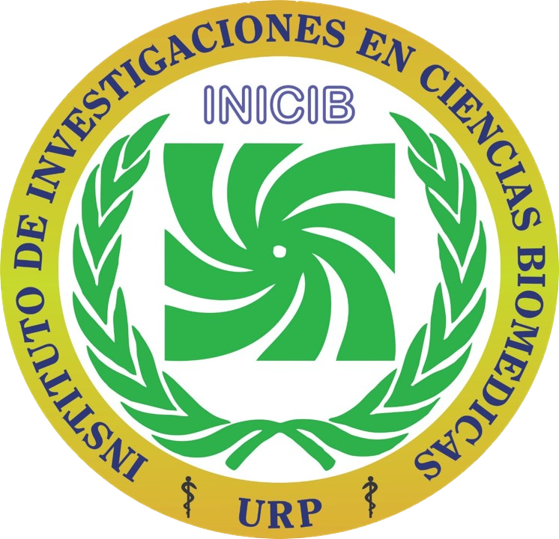Beneficios de la quimioterapia adyuvante en los resultados de supervivencia del cáncer de mama triple negativo pT1N0M0
Benefits of adjuvant chemotherapy on pT1N0M0 triple-negative breast cancer survival outcomes | 辅助化疗对 PT1N0M0 三阴性乳腺癌生存结果的益处
DOI:
https://doi.org/10.25176/RFMH.v24i4.6592Palabras clave:
Quimioterapia adyuvante, supervivencia global, supervivencia libre de progresión, cáncer de mama triple negativoResumen
Introduction: Triple-negative breast cancer (TNBC) is notably an aggressive breast cancer (BC) subtype, leading to early relapse and poor prognosis. Effects of adjuvant chemotherapy among early-stage TNBC (pT1N0M0) patients remain unclear in different populations. Objectives: Our study aimed to determine the impact of adjuvant chemotherapy on overall survival (OS) and progression-free survival (PFS) within the specific subset of Peruvian pT1N0M0 TNBC patients (pT1a/b vs. pT1c). Methods: We retrospectively analyzed 2007 TNBC cases diagnosed between 2000-2014 at the Instituto Nacional de Enfermedades Neoplásicas (Lima, Peru). We included only non-metastatic TNBC cases and classified them as pT1N0M0 after surgery. TNBC patients who underwent neoadjuvant chemotherapy were excluded. We describe our population according to the tumor size from the residue disease (pT1a/b vs. pT1c). We used the Kaplan-Meier method test to determine differences in survival curves for OS and PFS. A Univariate Cox proportional hazards model was used to identify risk factors for PFS. Results: Our study cohort included 124 TNBC patients. Around 65.3% (n=81) were undergoing adjuvant chemotherapy. Notably, among pT1c patients, this treatment was more prevalent compared to pT1a/b (72.1% vs. 50.0%). Survival analysis showed no significant OS benefit from chemotherapy (HR:2.46,95%CI:0.74-8.13,p=0.13). However, a marked improvement in PFS was noted exclusively in the pT1c subgroup, with patients not treated with chemotherapy offering a prognostic risk (HR:20.10,95% CI:5.54-73.10,p<0.0001). pT1a/b patients demonstrated no benefit from chemotherapy regarding progression (HR:3.07,95% CI:0.27-34.50,p=0.34). Conclusion: Our study highlights that adjuvant chemotherapy significantly improves PFS in pT1cN0M0 TNBC patients but shows no clear benefit for smaller tumors (pT1a/bN0M0). Future research should focus on personalized chemotherapy strategies in early-stage TNBC to identify predictive markers for survival.
Descargas
Citas
F. Bray, J. Ferlay, I. Soerjomataram, R. L. Siegel, L. A. Torre, and A. Jemal, “Global cancer statistics 2018: GLOBOCAN estimates of incidence and mortality worldwide for 36 cancers in 185 countries,” CA Cancer J Clin, vol. 68, no. 6, pp. 394–424, Nov. 2018, doi: 10.3322/CAAC.21492.
A. A. Onitilo, J. M. Engel, R. T. Greenlee, and B. N. Mukesh, “Breast cancer subtypes based on ER/PR and Her2 expression: comparison of clinicopathologic features and survival,” Clin Med Res, vol. 7, no. 1–2, pp. 4–13, Jun. 2009, doi: 10.3121/CMR.2009.825.
C. A. Parise and V. Caggiano, “Risk of mortality of node-negative, ER/PR/HER2 breast cancer subtypes in T1, T2, and T3 tumors,” Breast Cancer Res Treat, vol. 165, no. 3, pp. 743–750, Oct. 2017, doi: 10.1007/S10549-017-4383-5.
R. A. Leon-Ferre et al., “Impact of histopathology, tumor-infiltrating lymphocytes, and adjuvant chemotherapy on prognosis of triple-negative breast cancer,” Breast Cancer Res Treat, vol. 167, no. 1, pp. 89–99, Jan. 2018, doi: 10.1007/S10549-017-4499-7.
S. J. Dawson, E. Provenzano, and C. Caldas, “Triple negative breast cancers: clinical and prognostic implications,” Eur J Cancer, vol. 45 Suppl 1, no. SUPPL. 1, pp. 27–40, Sep. 2009, doi: 10.1016/S0959-8049(09)70013-9.
C. Vallejos et al., “Breast cancer classification according to immunohistochemistry markers: subtypes and association with clinicopathologic variables in a peruvian hospital database,” Clin Breast Cancer, vol. 10, no. 4, pp. 294–300, Aug. 2010, doi: 10.3816/CBC.2010.N.038.
S. J. Serrano-Gomez et al., “High prevalence of luminal B breast cancer intrinsic subtype in Colombian women,” Carcinogenesis, vol. 37, no. 7, pp. 669–676, Jul. 2016, doi: 10.1093/CARCIN/BGW043.
A. B. H. Bhatti et al., “Outcomes of triple-negative versus non-triple-negative breast cancers managed with breast-conserving therapy,” Asian Pac J Cancer Prev, vol. 15, no. 6, pp. 2577–2581, 2014, doi: 10.7314/APJCP.2014.15.6.2577.
D. C. Doval and A. Dogra, “Commentary Open Access Commentary: Eight Year Survival Analysis of Patients with Triple Negative Breast Cancer in India,” J Cancer Treatment Diagn, vol. 1, no. 1, pp. 4–5, 2017, Accessed: Apr. 01, 2024. [Online]. Available: www.who.int/cancer/detection/breastcancer/en/index1.html
G. De-La-Cruz-Ku et al., “Triple-negative breast cancer in Peru: 2000 patients and 15 years of experience,” PLoS One, vol. 15, no. 8, Aug. 2020, doi: 10.1371/JOURNAL.PONE.0237811.
F. Petrelli et al., “Adjuvant chemotherapy for resected triple negative breast cancer patients: A network meta-analysis,” The Breast : Official Journal of the European Society of Mastology, vol. 67, p. 8, Feb. 2023, doi: 10.1016/J.BREAST.2022.12.004.
Y. X. Ren et al., “Effects of adjuvant chemotherapy in T1N0M0 triple-negative breast cancer,” Breast, vol. 43, pp. 97–104, Feb. 2019, doi: 10.1016/J.BREAST.2018.11.011.
X. An et al., “Adjuvant chemotherapy for small, lymph node-negative, triple-negative breast cancer: A single-center study and a meta-analysis of the published literature,” Cancer, vol. 126 Suppl 16, no. S16, pp. 3837–3846, Aug. 2020, doi: 10.1002/CNCR.32878.
M. E. H. Hammond et al., “American Society of Clinical oncology/college of American Pathologists guideline recommendations for immunohistochemical testing of estrogen and progesterone receptors in breast cancer,” Arch Pathol Lab Med, vol. 134, no. 6, pp. 907–922, Jun. 2010, doi: 10.5858/134.7.e48.
M. B. Amin et al., “The Eighth Edition AJCC Cancer Staging Manual: Continuing to build a bridge from a population-based to a more ‘personalized’ approach to cancer staging,” CA Cancer J Clin, vol. 67, no. 2, pp. 93–99, Mar. 2017, doi: 10.3322/CAAC.21388.
S. Loibl et al., “Early breast cancer: ESMO Clinical Practice Guideline for diagnosis, treatment and follow-up ☆,” Annals of Oncology, vol. 35, no. 2, pp. 159–182, Feb. 2024, doi: 10.1016/J.ANNONC.2023.11.016/ATTACHMENT/AE650DFD-CEDF-47E9-B303-96D0D731B1B0/MMC1.PDF.
Y. X. Ren et al., “Effects of adjuvant chemotherapy in T1N0M0 triple-negative breast cancer,” Breast, vol. 43, pp. 97–104, Feb. 2019, doi: 10.1016/J.BREAST.2018.11.011.
A. Y. Ho et al., “Favorable prognosis in patients with T1a/T1bN0 triple-negative breast cancers treated with multimodality therapy,” Cancer, vol. 118, no. 20, pp. 4944–4952, Oct. 2012, doi: 10.1002/CNCR.27480.
W. Carbajal-Ochoa, D. C. Bravo-Solarte, A. M. Bernal, and J. D. Anampa, “Benefit of adjuvant chemotherapy in lymph node-negative, T1b and T1c triple-negative breast cancer,” Breast Cancer Res Treat, vol. 203, no. 2, pp. 257–269, Jan. 2024, doi: 10.1007/S10549-023-07132-6.
D. C. Bravo-Solarte, F. Zhang, and J. D. Anampa, “Assessment of Use and Impact of Chemotherapy in Lymph Node-Negative, T1a Triple-Negative Breast Cancer,” Clin Breast Cancer, vol. 23, no. 7, pp. 763-773.e6, Oct. 2023, doi: 10.1016/J.CLBC.2023.08.002.
S. Loi et al., “Tumor-Infiltrating Lymphocytes and Prognosis: A Pooled Individual Patient Analysis of Early-Stage Triple-Negative Breast Cancers,” J Clin Oncol, vol. 37, no. 7, pp. 559–569, 2019, doi: 10.1200/JCO.18.01010.
R. A. Leon-Ferre et al., “Impact of histopathology, tumor-infiltrating lymphocytes, and adjuvant chemotherapy on prognosis of triple-negative breast cancer,” Breast Cancer Res Treat, vol. 167, no. 1, pp. 89–99, Jan. 2018, doi: 10.1007/S10549-017-4499-7.
J. H. Park et al., “Prognostic value of tumor-infiltrating lymphocytes in patients with early-stage triple-negative breast cancers (TNBC) who did not receive adjuvant chemotherapy,” Ann Oncol, vol. 30, no. 12, pp. 1941–1949, Dec. 2019, doi: 10.1093/ANNONC/MDZ395.

Descargas
Publicado
Cómo citar
Número
Sección
Licencia
Derechos de autor 2024 Revista de la Facultad de Medicina Humana

Esta obra está bajo una licencia internacional Creative Commons Atribución 4.0.


